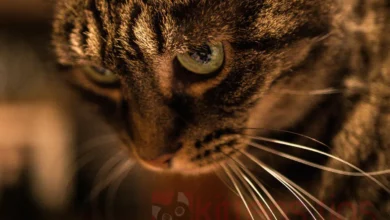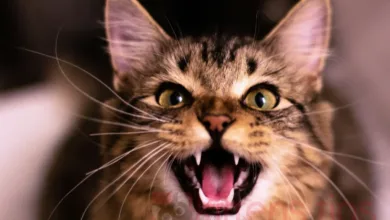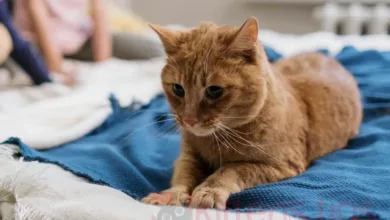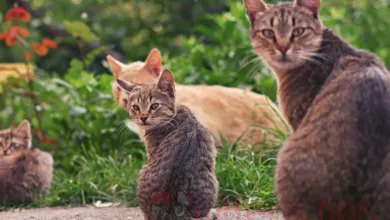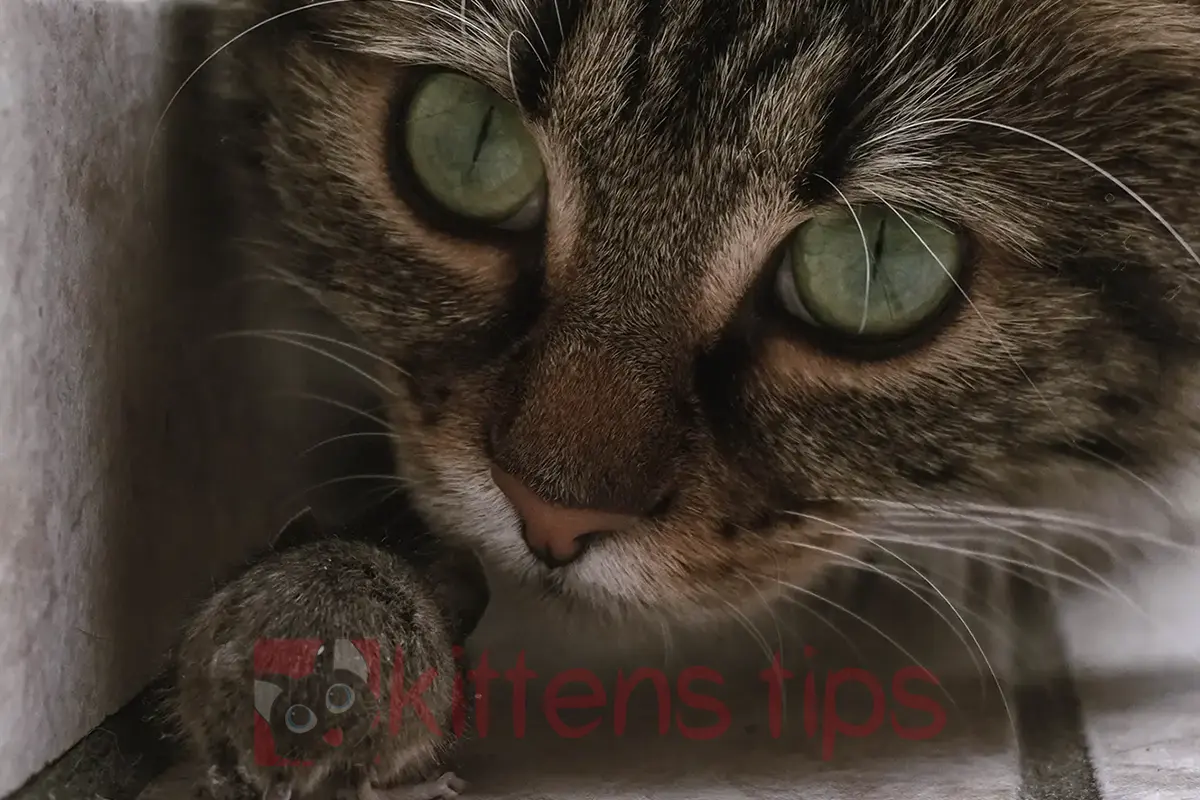
Why do cats bring mice or birds, live lizards or toys to their owners?
Not all cat owners know how to interpret what it means when cats bring mice, birds, live lizards, or toy lizards to the doorstep, on the sofa, or wherever the owner is. While in rural environments, it’s a joy when a cat brings mice because it helps with rodent control, in some households, owners are absolutely horrified by this behavior of the cat. Especially if there are peoples who panic at the sight of rodents, whether they’re alive or dead.
Although domesticated for over 10,000 years, a cat’s predator instincts have not been altered. For a house-dwelling cat, it’s normal to catch mice, sparrows, pigeons, small-sized birds (even chicken chicks), or lizards. These small creatures are part of the cat’s diet. Even if they don’t eat the catch, the predator instinct urges them to hunt.
Why do cats bring mice or birds, live lizards or toys to their owners?
To the dismay of many cat owners, these animals often choose to present their prey in front of their owners. Some cats even emit a specific meow to draw attention to the “gift” they’ve brought and persist until they’re certain that the owner has “taken notice” of their feat.
If you live in a house and have a cat, it’s almost certain that it has brought a bird, mouse, or other captured animal, whether alive or… deceased, at least once.
Even indoor cats don’t lag behind. The chances are slim that a cat residing inside will bring a mouse, lizard, or live prey, but it might bring small-sized toys and place them at your feet or in front of the bedroom door.
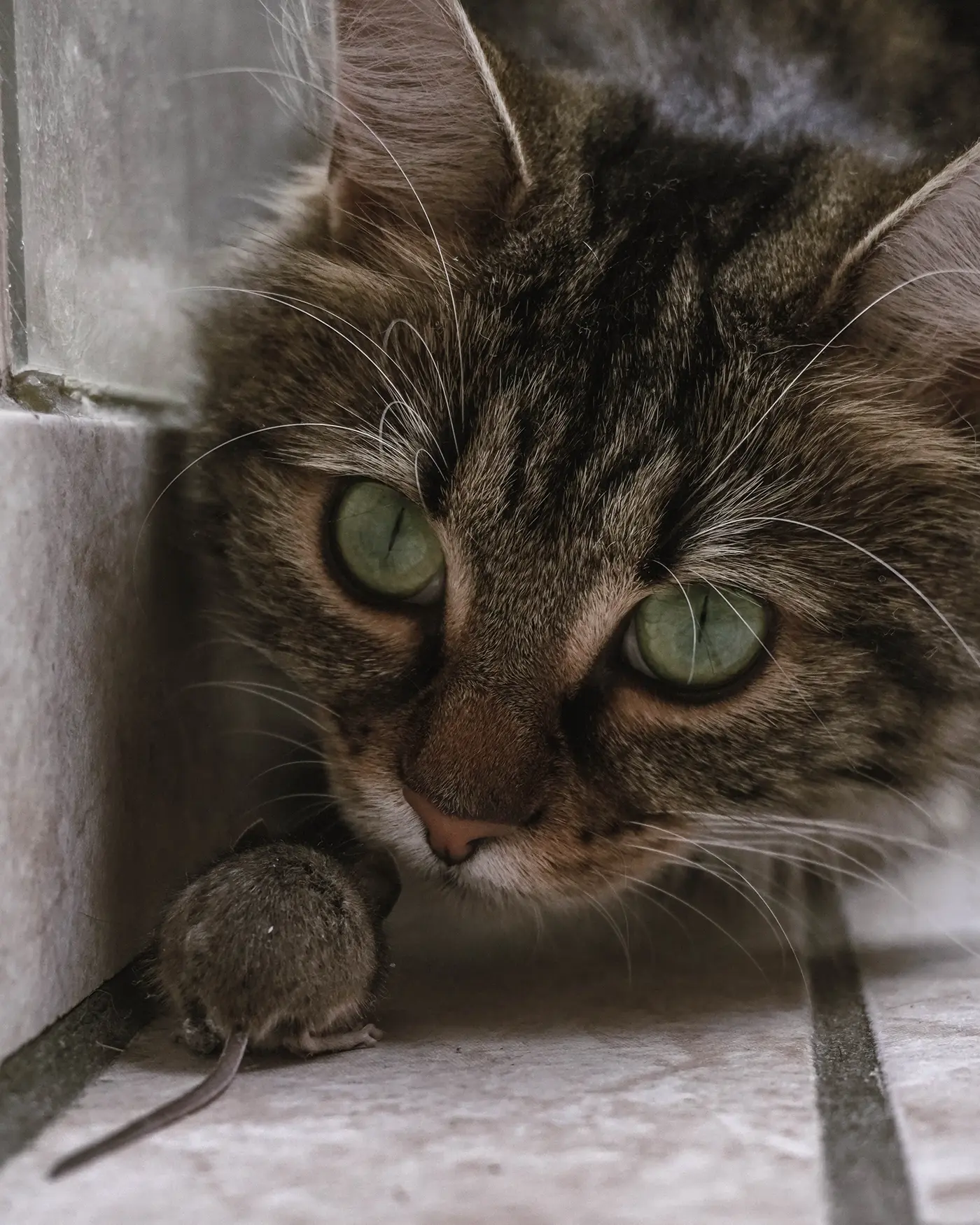
For a cat, the ability to hunt is its greatest skill and accomplishment. Naturally sociable, cats feel the need to share their success with those close to them. Therefore, they consider you part of their family, and the prey they bring is to demonstrate that they are capable of hunting and sharing their catch with you. You don’t necessarily have to be thrilled by this behavior, but you can offer a simulated smile of complacency to ensure the cat doesn’t feel offended.
Also you can read: Why Do Cats Chatter at Birds? Unveiling the Enigma.
We also encounter this behavior in adult cats that have small kittens. They frequently bring prey to their young ones, emitting specific sounds and meowing to gather the kittens around the catch. As the kittens grow, the mother cat will often bring live mice, allowing the young ones to develop their hunting skills on real prey.
It’s worth mentioning that cats don’t necessarily hunt to procure food or because they are hungry. Hunting is ingrained in a cat’s DNA, and most of the time, the mice are left behind once life has departed. Many cats don’t eat mice, let alone rats.
